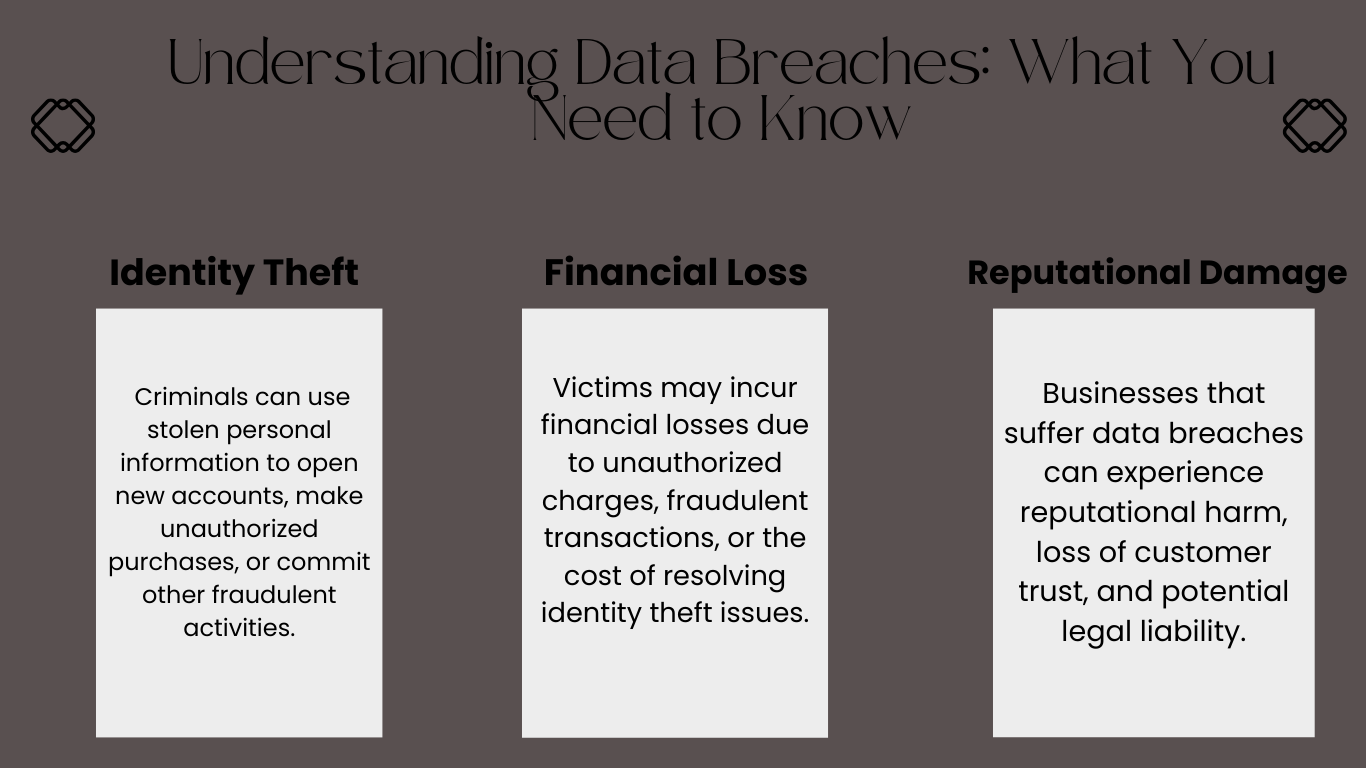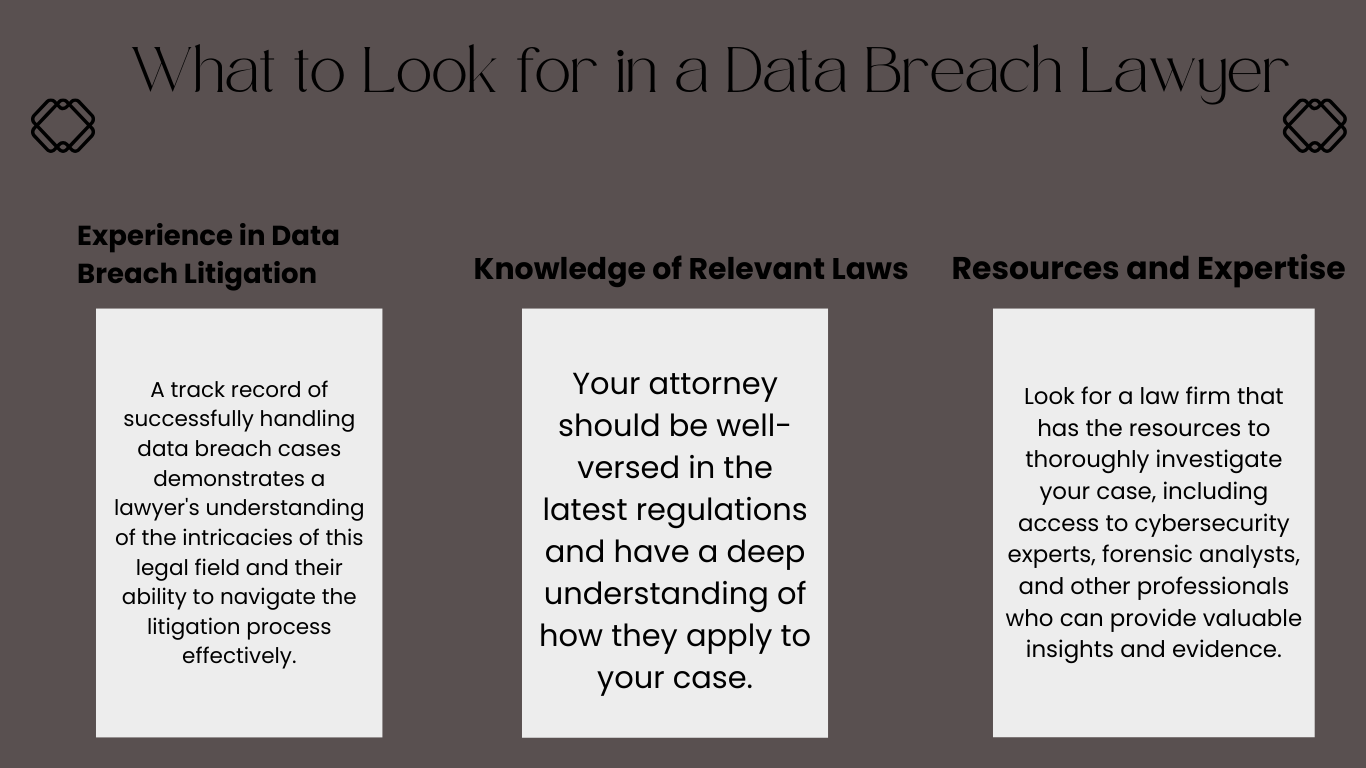Posted in News on July 2, 2024
Where to Get Data Breach Help: A Comprehensive Guide to Protecting Your Rights
In today’s digital age, data breaches have become an unfortunate reality. Whether it’s a major corporation or a small business, the risk of unauthorized access to sensitive information is ever-present. The aftermath of a data breach can be devastating, leaving individuals vulnerable to identity theft, financial fraud, and other harmful consequences. If you or your business has been affected by a data breach, knowing where to turn for data breach help is essential.
At Heenan & Cook, we understand the complexities of data breach law and the impact these incidents have on individuals and businesses. Our mission is to provide expert legal guidance and support to those who have been affected by data breaches. We are committed to helping victims understand their rights, explore their legal options, and seek appropriate compensation for their losses.
 Understanding Data Breaches: What You Need to Know
Understanding Data Breaches: What You Need to Know
A data breach occurs when sensitive, confidential, or protected information is accessed, copied, transmitted, viewed, stolen, or used by an unauthorized individual or entity. This information can include Social Security numbers, credit card details, medical records, and other personal data.
Data breaches can happen in various ways, including:
- Hacking: Cybercriminals gaining unauthorized access to computer systems or networks.
- Phishing: Tricking individuals into revealing personal information through deceptive emails, websites, or text messages.
- Insider Threats: Employees or contractors misusing or leaking confidential information.
- Accidental Disclosure: Unintentional release of sensitive data due to human error or technical malfunctions.
The consequences of a data breach can be severe, including:
- Identity Theft: Criminals can use stolen personal information to open new accounts, make unauthorized purchases, or commit other fraudulent activities.
- Financial Loss: Victims may incur financial losses due to unauthorized charges, fraudulent transactions, or the cost of resolving identity theft issues.
- Reputational Damage: Businesses that suffer data breaches can experience reputational harm, loss of customer trust, and potential legal liability.
Your Rights After a Data Breach
If you’ve been affected by a data breach, it’s important to know your rights and the legal protections available to you. Under state and federal laws, you may have the right to:
- Notification: Be notified by the company or organization that experienced the breach.
- Credit Monitoring and Identity Theft Protection: Receive free credit monitoring or identity theft protection services.
- Compensation: Seek compensation for financial losses, emotional distress, and other damages resulting from the breach.
Where to Get Data Breach Help: Finding the Right Resources
When navigating the aftermath of a data breach, knowing where to seek help is crucial. Several resources can provide the guidance and support you need:
Legal Professionals:
- Data Breach Lawyers: Experienced data breach attorneys can assess your situation, explain your legal rights, and help you pursue legal action if necessary. They can negotiate with the responsible party, file a lawsuit on your behalf, and advocate for fair compensation for your losses.
- Your Firm’s Services: At [Your Law Firm’s Name], our data breach attorneys have a proven track record of success in helping victims of data breaches. We understand the complex legal landscape and are committed to fighting for your rights. We offer free consultations to discuss your case and determine the best course of action.
Government Agencies:
- Federal Trade Commission (FTC): The FTC is the primary federal agency responsible for protecting consumers from unfair and deceptive practices, including data breaches. You can file a complaint with the FTC if you believe your information has been compromised in a data breach. They may investigate the incident and take action against the responsible party.
- State Attorneys General: Each state has an attorney general who enforces consumer protection laws. If a data breach affects a large number of residents in a particular state, the attorney general may investigate and file a lawsuit against the company or organization responsible for the breach.
- Other Relevant Agencies: Depending on the nature of the data breach, other government agencies may be able to offer assistance. For example, the Department of Homeland Security (DHS) may be involved if the breach is suspected to be an act of cyberterrorism.
Consumer Advocacy Groups:
- Identity Theft Resource Center (ITRC): The ITRC is a non-profit organization dedicated to empowering and assisting victims of identity theft. They offer a wealth of information and resources on data breaches, including a toll-free hotline and online chat support.
- Other Advocacy Groups: Several other advocacy groups focus on data privacy and consumer protection. These organizations can provide information, resources, and support to victims of data breaches. Some examples include the Privacy Rights Clearinghouse and the Electronic Privacy Information Center.
For an in-depth guide on navigating the legal complexities of data breaches and finding the right legal representation not just in Montana but other states, we recommend checking out this website.
 What to Look for in a Data Breach Lawyer
What to Look for in a Data Breach Lawyer
When seeking data breach help from a legal professional, it’s crucial to choose an attorney who specializes in this complex area of law. Here’s what to look for:
- Experience in Data Breach Litigation: A track record of successfully handling data breach cases demonstrates a lawyer’s understanding of the intricacies of this legal field and their ability to navigate the litigation process effectively.
- Knowledge of Relevant Laws: Data breach law is a constantly evolving area, with both federal and state laws in play. Your attorney should be well-versed in the latest regulations and have a deep understanding of how they apply to your case.
- Resources and Expertise: Look for a law firm that has the resources to thoroughly investigate your case, including access to cybersecurity experts, forensic analysts, and other professionals who can provide valuable insights and evidence.
- Communication and Transparency: Choose an attorney who is committed to open and transparent communication. They should keep you informed about the progress of your case, explain your legal options clearly, and answer your questions in a timely manner.
- Client-Centered Approach: Your attorney should prioritize your needs and goals throughout the legal process. They should be compassionate, understanding, and dedicated to achieving the best possible outcome for you.
How Heenan & Cook Can Help
At Heenan & Cook, our team of data breach lawyers in Montana has extensive experience representing individuals and businesses affected by data breaches. We understand the sensitive nature of these cases and are committed to providing compassionate, personalized legal representation.
Our services include:
- Free Case Evaluation: We offer free consultations to assess your case and determine the best course of action.
- Thorough Investigation: Our team will conduct a comprehensive investigation of the data breach to identify the responsible parties and gather evidence to support your claim.
- Legal Representation: We will represent you in negotiations with the responsible party or in court, if necessary, to seek the compensation you deserve.
- Ongoing Support: We will provide ongoing support and guidance throughout the legal process, keeping you informed of your rights and options every step of the way.
If you have been affected by a data breach in Montana and anywhere else, it’s important to seek data breach help from a qualified legal professional. An experienced data breach lawyer can help you understand your rights, explore your legal options, and protect your interests.
At Heenan & Cook, we are committed to helping victims of data breaches get the justice and compensation they deserve. Contact us today for a free consultation to discuss your case and learn how we can help you.



 Understanding Data Breaches: What You Need to Know
Understanding Data Breaches: What You Need to Know What to Look for in a Data Breach Lawyer
What to Look for in a Data Breach Lawyer